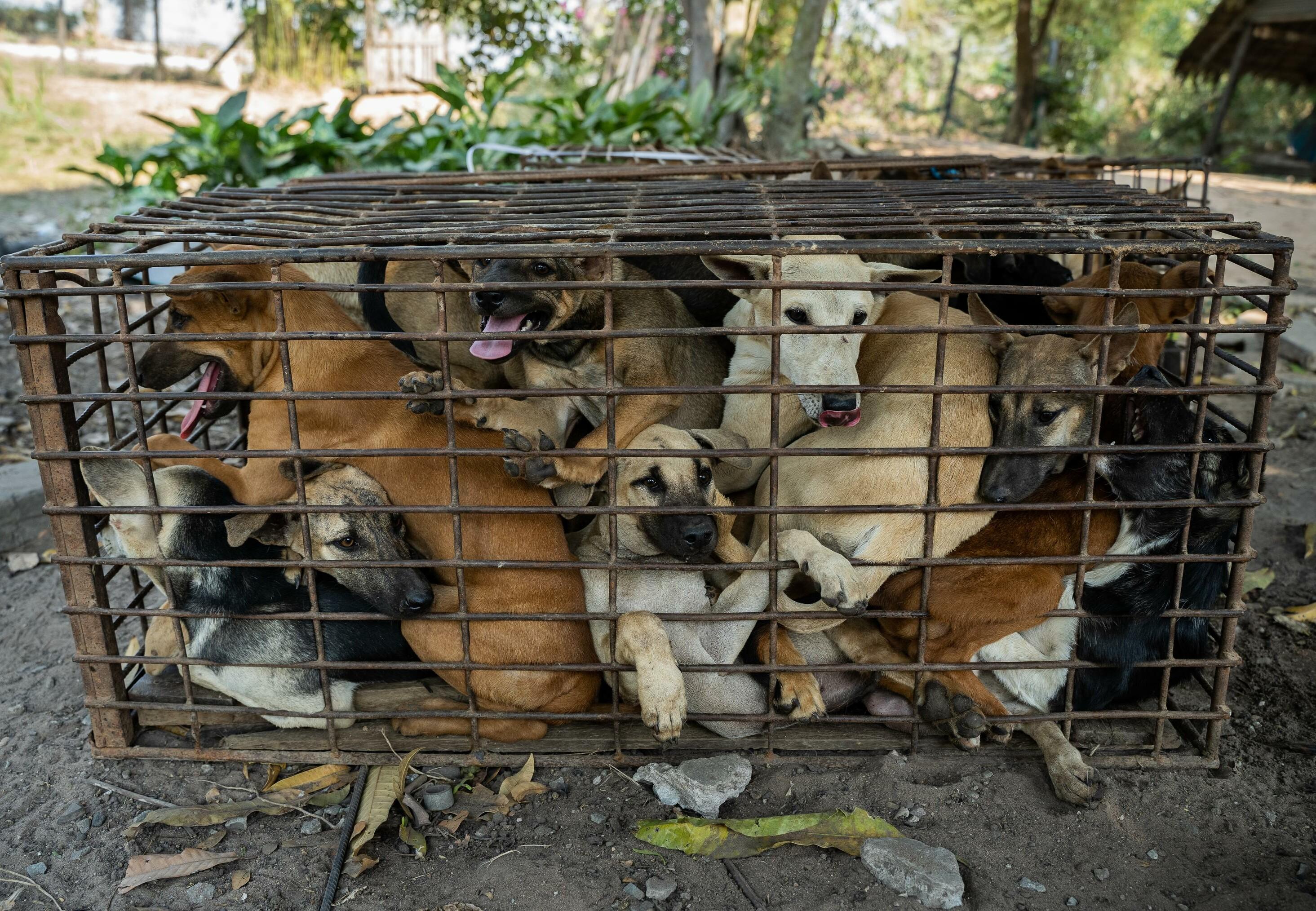
Photo Source: FOUR PAWS / Reuters
Old News but how did it go? Small progress, but the bigger system still profits from animal cruelty
Some cautiously good news it was 5 years ago: Siem Reap has become the first province in Cambodia to officially ban the sale and consumption of dog meat. According to local authorities, the trade had become a "business that is brutal and horrific." About 3 million dogs are killed for meat in Cambodia each year, many stolen from homes or strays — crammed into cages, beaten, and slaughtered under inhumane conditions.
The ban is significant because Siem Reap is a major tourist area, and there's growing pressure both locally and internationally to address this. Link to article
But let's not kid ourselves: this isn't about a moral awakening. Authorities are leaning into a sanitized image of cruelty — cracking down on dog meat while turning a blind eye to the industrial slaughter of pigs, chickens, cows, etc., which continues full steam, often under worse conditions. Why? Because those animals are "normal" to eat under capitalist consumption norms — their suffering is just conveniently invisible.
Western outrage over dog meat always seems louder than outrage over factory farming at home. This selective morality is part of a broader system that commodifies living beings, sanitizes violence, and calls it “dinner.” It's not just about stopping the dog meat trade — it's about questioning why we’re okay with mass exploitation of some animals while pretending to "love" others.
Progress? Maybe. But it's also a reminder of how deeply normalized animal suffering is — and how the system will only ban what's bad for optics, not what's actually cruel.
What happened though?
Here’s an updated overview—five years after the 2020 ban—on what's really happening with the dog-meat trade in Siem Reap and Cambodia:
Ongoing Challenges & Enforcement
- Illegal trade persists. In August 2022, authorities seized 700 kg of dog meat en route through Siem Reap to Kampong Thom—despite the provincial ban, smugglers continue moving dog meat covertly ([Khmer Times]).
- Underground routes remain. Cambodianess reported that while the provincial ban sends a strong signal, without rigorous enforcement it has limited impact on traders ([Cambodianess]).
Advocacy & Awareness Efforts
- Provincial workshops. In May 2022, Siem Reap hosted its first “Dog Meat Trade Awareness” workshop—bringing together FOUR PAWS, Royal Canin, CMAC, and ministry officials to educate, shut down illegal restaurants/slaughterhouses, and encourage alternative livelihoods.
- Rescues & aftercare. In 2021, 61 dogs were intercepted en route to a slaughterhouse and successfully rehabilitated and adopted — a win for enforcement and animal welfare teams.
National & Regional Momentum
- Government building support. CMAC and the General Directorate of Animal Health & Production (GDAHP) have strengthened collaboration with FOUR PAWS since 2020, now targeting high-volume slaughterhouses—particularly in Phnom Penh.
- Toward wider bans. Animal welfare groups are campaigning for a national ban, gathering signatures under the “This Is Not What Cambodians Want” initiative.
- Public sentiment shifting. A 2021 poll suggested near‑universal support—some 90%—for banning dog meat nationwide.
A Glimpse from Locals
Summary: What’s Changed Since 2020?
| Progress | Ongoing Issues |
|---|---|
| Legal ban in place | Black-market trade persists |
| Awareness & rescues | Spotty enforcement in places |
| Provincial model for rollout | No full national law yet |
| Public support growing | Underground routes still active |
Thoughts?
The ban in Siem Reap was a landmark first step—but five years on, the fight continues. The trade hasn't disappeared—it’s adapted. Real progress now depends on scaling enforcement, spreading the legal patchwork nationally, and keeping public pressure high. That’s where sustainable change begins.